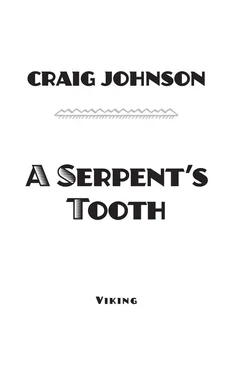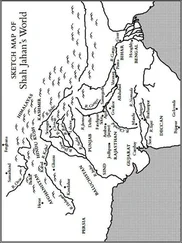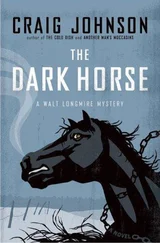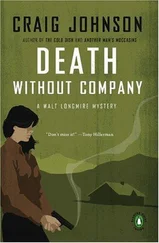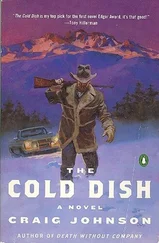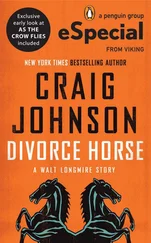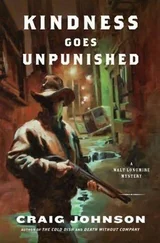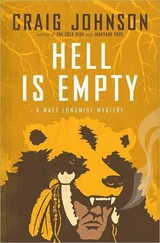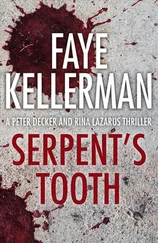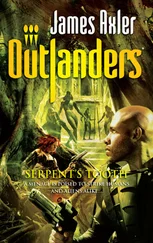I thought about walking over and looking for the shotgun he’d carried the other night but decided that there wasn’t reasonable suspicion—yet. I opened my door and looked through the window at Tomás, still standing there. “It’s unlocked.”
His face rose, and he stared at me. “ Qué? ”
“The truck—it’s unlocked.”
He nodded and pulled the door open, climbing in and closing it behind him.
“Trouble?”
He looked at me. “What?”
I smiled the warmest smile I could summon up. “Trouble with your compadres ?”
“They are not my friends.”
I sat there for a moment and then started the Bullet, backing it out and pulling past the sullen crew. “I don’t think they’re mine either.”
We drove the three blocks in silence, and I parked in my OFFICIAL VEHICLES spot beside the Emergency Room. “I think my truck knows the way here so well I could just drape the reins over the steering wheel and go to sleep.”
“You see a lot of people hurt?”
I turned my head and looked at him. “Not particularly; generally it’s me.” He said nothing more. “How about you?”
“My father was in a business that required a great deal of violence, but he walked away from all of that; unfortunately, it did not walk away from him.” He sat back in the truck seat, and it seemed as if he wanted to talk. “My mother, in an attempt to insulate me from the family business, sent me to school.” He stared at the dash of my truck, not seeing it at all. “After college and before all of this, I returned home and became involved in my father’s business. I believe it might be one of the reasons he walked away from all of it—an attempt to save my mother and me.” He laughed. “I was younger then and impressionable, before I learned the ways of the world.”
He stopped talking, and I was compelled to ask, “And what are those?”
His eyes shifted and looked at me, surprised I didn’t know the answer. “They all involve money.”
“Well, I guess in some circles it’s pretty important. . . .”
“It is everything. The only thing that can possibly compare would be power, but the only true path to power is through money.” He glanced around the vehicle. “This truck, your badge, gun, and the oaths you have sworn—they are all simply for the protection of the status quo of power and wealth, the muscle for what is and what must be. Anything else is delusional.”
It was silent in the cab, and I didn’t want to argue with the man, but his philosophies were heading down a dark road and I thought I should redirect them. “I guess I disagree.”
A hard smile crept to the corner of his mouth as he slipped the stiletto from his back pocket and flipped it open. “Which part?”
“All of it.”
He held the beautiful but worn cutlery out for me to see. “This knife, it is clumsy, unbalanced, and useless except for show—but it is the knife I carried in prison and I am partial to it. . . .” His dark eyes turned to mine. “I know you have done a background check on me, Sheriff. It would have only been prudent.” He looked at the knife again. “It is a horrible throwing knife, but I had plenty of time to practice—we do the best we can with what we have.” He laughed. “Perhaps we are all delusional.”
“Well, you wouldn’t be the first one to say that.”
“You will argue the primacy of love or family?”
I sighed. “Fortunately, my jurisdiction doesn’t include those.”
“But for you, they are truths?”
“Yes.”
The smile grew more rigid. “They will fall away—love, family. . . . Without the support of money and power even they will fall away.” He rubbed a long, flat hand across his knee, as if polishing it. “You have family?”
“Yep.”
“Children?”
“A daughter and a grandchild on the way.”
“Wife?”
“Passed seven years ago, cancer.”
“I am sorry.” He looked at me with those dark eyes for a while longer and then unfastened his safety belt.
“What about your family, Mr. Bidarte?”
He sat there, looking through the windshield of my truck toward the entrance of the Emergency Room. “I have only her left.”
• • •
Isaac Bloomfield met us at the double swinging doors past the mauve waiting room. I looked around for the other two medical musketeers, but evidently the doc had decided to give them the afternoon off.
Isaac studied Tomás through his thick-lens glasses. “She’s right in here.”
We followed as he made an immediate left and down the hall to room 22. Big Wanda was propped against a team of pillows and was reading from a Gideon Bible that she’d procured from the nightstand. She looked up, and her cheeks bunched back in a joyous smile when she saw her son. “Tomasito!”
He hurried to the bed and embraced her but then quickly stepped back and looked at us. “I would like a moment with her alone, please?”
“Sure.” I escorted Bloomfield out the door into the hallway and past the unoccupied nurse’s station where the wall clock ticked loudly and the coffee pot was always on. I snagged a Styrofoam cup from the stack and poured myself one. “Doc?”
“No, thanks.” He waited a moment and then added, “You look tired.”
I brought my coffee over to the counter and rested my elbows on the plastic wood-grain surface. “In answer to your observation, I’m operating on about two and a half hours’ sleep.”
We both straightened as Tomás came through the doors. “I am ready to go.”
“That was quick.” I gulped what passed for coffee at Durant Memorial and tossed the cup in the trash. “All right.”
“I will be taking my mother with me.”
I glanced at Isaac, who spoke in a conciliatory tone. “I’m afraid you’ll have to allow for the twenty-four hours that’s customary with cases of concussion, even mild concussion.”
Bidarte folded his arms, and I listened to the leather of his jacket crinkle like the skin on a snake. “All right, if it’s really necessary.” He turned to me. “But I will need the vehicle she was driving.”
We all listened to the clock above the nurse’s station as it ticked, or at least I did. “Um . . . That might prove to be difficult, too.”
• • •
I’d explained that the car had been impounded and that it would take longer to get it.
Tomás supervised the loading of the groceries while George sat in the truck, the job obviously beneath him. I promised Bidarte that I’d check on the station wagon while they ran some errands in Gillette—told him that I would leave word with Ruby as to how he should proceed and gave him one of my cards.
He’d left without saying good-bye.
I drove over to Ray’s Sinclair, which had been Ray’s Shell, Ray’s Texaco, and Ray’s Red Crown before that. It was an old-style, two-bay filling station, the office with a wall of glass block on the side. The bathroom key was attached to an exhaust manifold, and as far as I knew, no one had ever bought one of the withering candy bars from the glass case upon which the cash register sat. No one came to Ray’s for the ambiance; they came for Fred Ray, automobile mechanic extraordinaire.
I walked through the office and underneath the shark-like looks of a familiar ’69 Mustang GT convertible that was on a lift in one of the bays. Ray was loosening the drain plug on the oil pan of the 428 Super Cobra Jet engine.
I reached up and placed a hand on one of the original bias-ply tires. “So you’re the one that keeps this thing in shape for Barbara Thomas, huh?”
The mechanic smiled at me through the grease smudged on his chin and upper lip. “Do you believe this thing has only seventeen thousand miles on it?” He rolled over an oil-catching container and unscrewed the plug the rest of the way, catching it in his well-trained hand before the golden liquid could carry it into the barrel. He brought his fingers up, rubbing a little of the viscosity between his fingers. “She lets that nephew of hers drive it, with her in the passenger seat, about a hundred miles a year and then sends it in here to get the oil changed and to keep it serviced. Hell, the biggest problem is keeping the battery charged.”
Читать дальше
